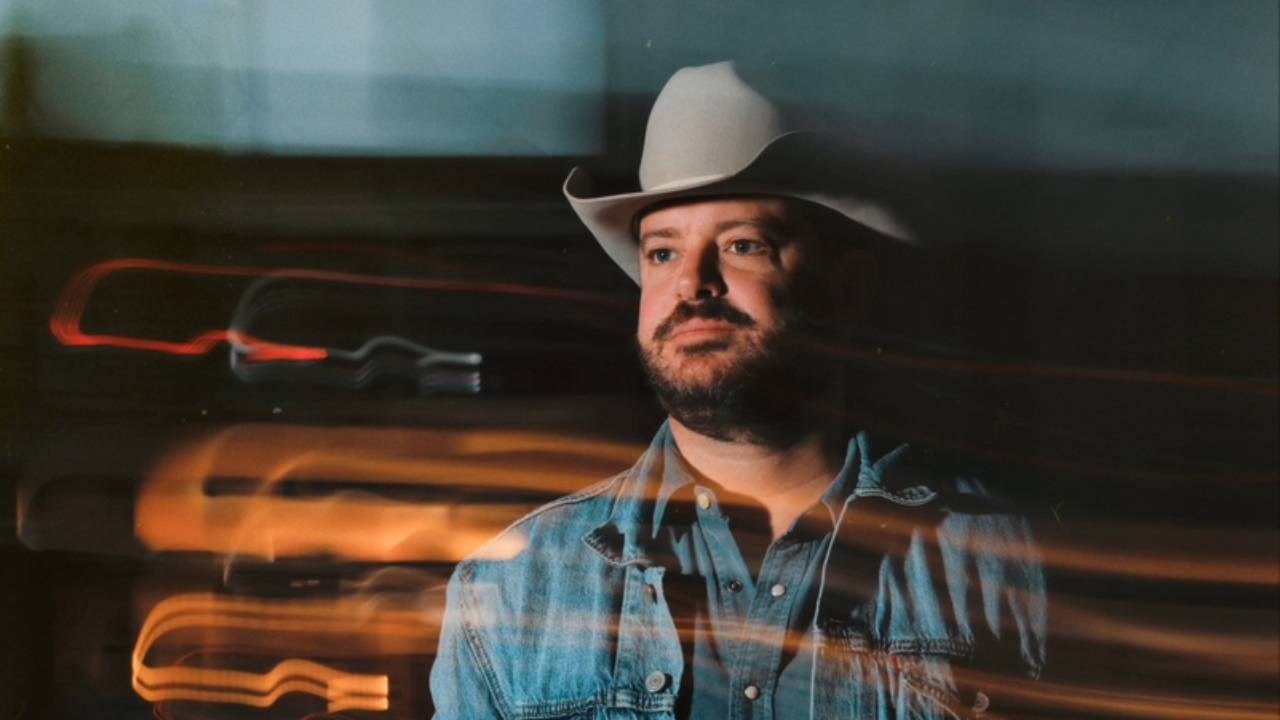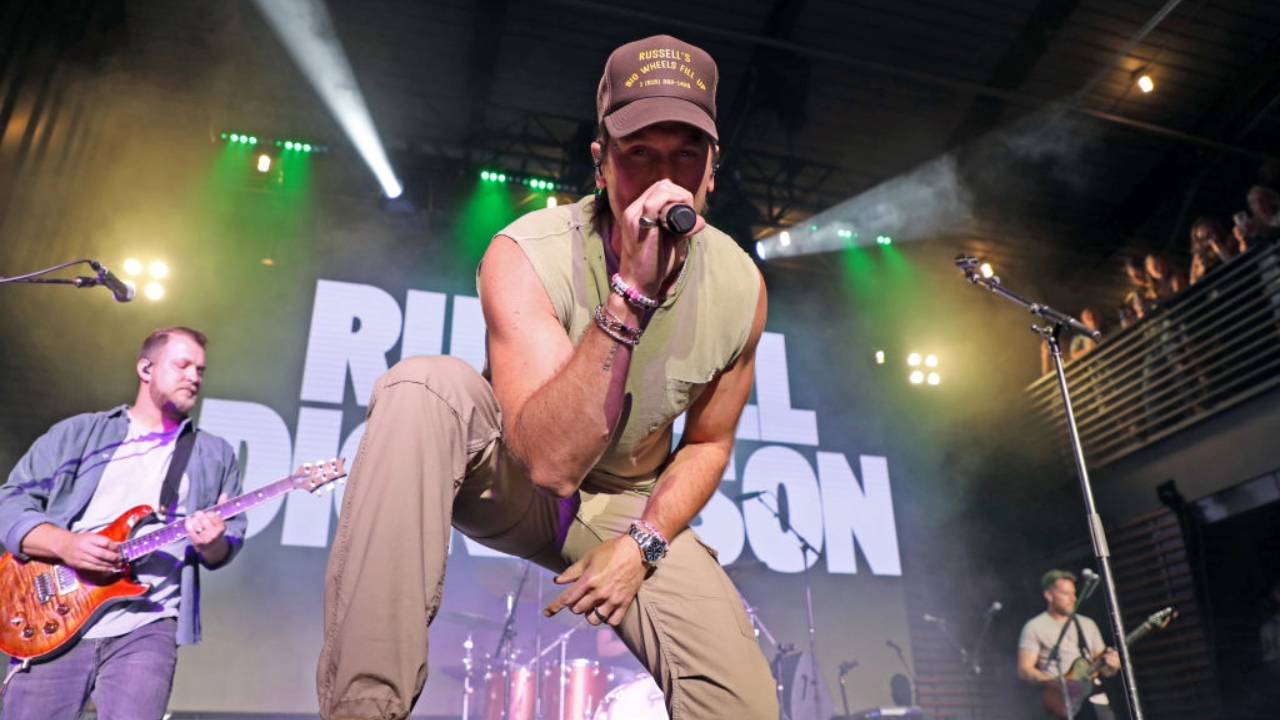Todd Snider Spins a Long Yarn on 'Live: The Storyteller'

Quirky folk singer Todd Snider has a knack for putting himself in the shoes of his varied subjects, whether it be a tree on its way to becoming a newspaper or an ex-con trying to land a respectable job, but his true strength may be as a stage performer.
On his new double-album, Todd Snider Live: The Storyteller, fans will hear the full spectrum of his sense of humor and showmanship -- like when he stops midsong in "Rose City" to explain a line about writing his name in a tunnel. He was almost 40 years old at the time and didn't remember doing it until driving through the tunnel with his road manager, Spike, the next morning. The payoff comes when he blames Spike for letting it happen.
In another tall tale that appears on the record, Snider is duped into meeting a false Bill Elliott (the NASCAR driver) after a concert. The small-time con man munches on snacks, takes a phone call from Snider's brother (a big fan) and even autographs his guitar before a bartender finally tips Snider off to the trick.
And like any true folkie, his witty stories do sometimes carry themes that veer into contentious territory -- yes, even religion and politics -- so he's careful to include a semi-poetic disclaimer at the beginning of his shows. Basically, it says, "I didn't come here to change anybody's mind, and if I give you my opinion, it's only because it rhymed."
It's a pity if anyone leaves on that note, though, because his act is arguably one of the most engaging and downright hilarious in the business. Snider recently called in to CMT.com to discuss what got him into folk music in the first place, truth (or the lack thereof) in storytelling and what happened after "Bill Elliott" came clean.
CMT.com: What is it about the east side of Nashville that attracts so many musicians and artists like yourself?
Snider: I feel like it's a little bubble on the buckle of the Bible Belt, you know. One of my neighbors said that. And a little place for sort of "liberal-minded" people that are still into country music. And I like being around it, you know. I like being part of it. And we have our Tomato Festival, our Wienery [a mobile hot-dog cart called I Dream of Weenie], a million bands and a Fourth of July festival. It's a funky little place that keeps getting funkier, I think.
How did you first get into folk music?
I was about 20 and I had just moved from Beaverton, Ore., went down to Santa Rosa, Calif., and from there, I went to San Marcos, Texas, which is right by Austin. I started working in a restaurant, and these friends of mine played some Jerry Jeff Walker record that I thought was cool. It reminded me of Neil Young. I was like, "That's acoustic guitar. ... That's cool." ... Me and my friend went to see Jerry Jeff and sat in the second row. He played all by himself with just an acoustic guitar, and that night I just knew. I said, "That's what I want to do." ... And so the next day, I went and got a guitar and just started. I was already sort of living like that, so it just seemed like he was singing about it.
Where did you learn how to tell such vivid stories?
There's a place called the Cheatham Street Warehouse in San Marcos, and the guy that owns it is named Kent Finley. And I'm not the only person who considers him sort of like a music professor. He mentors all these people when they're young. Right after I found Jerry Jeff, I played at an open mic at this guy's thing. He thought I had some promise, and he taught me how to do story songs by listening to Shel Silverstein with me and explaining to me what was going on. And then my first batch of story songs, he wrote with me.
Another person I studied a lot -- and still do -- is Arlo Guthrie. But his hero and a friend of his father's [Woody Guthrie] is a guy named Ramblin' Jack Elliot, who still plays and lives in San Francisco. And he's probably the best there is at that. ... I saw him at Jerry Jeff's birthday party, and he did this song. The intro to the song was this really pretty guitar part, and then he starts telling you how he's gonna sing you this song. And then he starts telling you why. And 25 minutes later, he sings the song -- and it's about two seconds long. (laughs)
One thing I really wanted to know is, how important is the truth when you're telling a good story?
I would say it's not important. Although, in my case, some of them I make up from scratch. And then a lot of them are pretty close, almost completely true. But I throw stuff in there if I think it's good storytelling or if I think it would make for a better movie or something.
What about the one you tell about going back to your hometown on "Rose City"? The one where you get drunk and write "Todd Snider Rules" in the same tunnel you did as a kid.
Yeah, that's a true story to the letter. ... I haven't seen [Spike] in a long time. I wonder if she'll see that. She moved to Arizona. So maybe if I see her on the road this year, she'll go, "I can't believe you put that story out there." I expect to get that from all these people.
What about this Bill Elliot character who swindles people for drinks? Is this a real guy?
I'll bet you that the story gets back to him because there's a guy in Chattanooga, Tenn., that's been doing that for years. His name is Bill Elliott. And he's not Bill Elliott. The thing is, racecar drivers have the helmets on, so I don't know what Bill Elliott looks like. So we bought it hook, line and sinker, you know. And then when the bartender told us, I don't go on in the story [on the record]. But, in reality, he goes on to say that the guy does that to people all the time. (laughs) ... We just gave him shit about it for a while. We didn't get mad at him, though.





